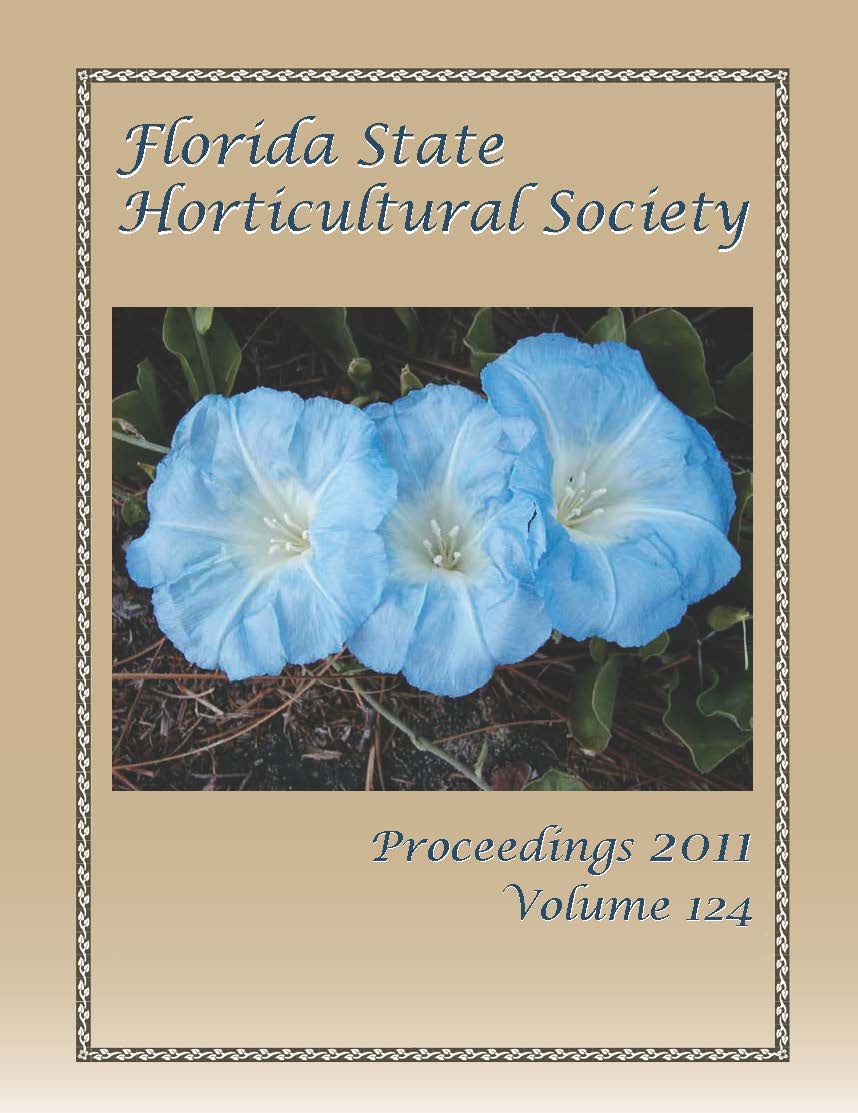Evaluation of Environmental Conditions within a Central Florida Citrus Grove: Potential Implications for Pesticide Spray Applications
Abstract
In Florida, the use of low volume sprayers has been adopted as a cost effective way to reduce Asian citrus psyllid populations. Low volume sprayers are calibrated to deliver 2 to 5 gal per acre with a mean pesticide droplet size of 100 microns in diameter. A review of the literature on drift and droplet size identified a number of environmental conditions that could affect the deposition of these small droplets. This study monitored these environmental conditions in a Florida citrus grove from June to Dec. 2010 and provides some insight into the prevalence of the favorable weather conditions for low volume spray applications. On average, wind speeds within a hedgerowed citrus grove were lower than outside the grove. During the study period, wind speeds outside the grove were greater than 10 miles per hour from 1% to 18% of the time depending on the month of the year. Conditions of low humidity (less than 50% relative humidity) occurred during the day and in the cooler months and ranged from 2.6% to 26.5% of the time depending on the month of the year. Temperature inversion conditions existed 16% to 32% of the time depending on the month of the year.

